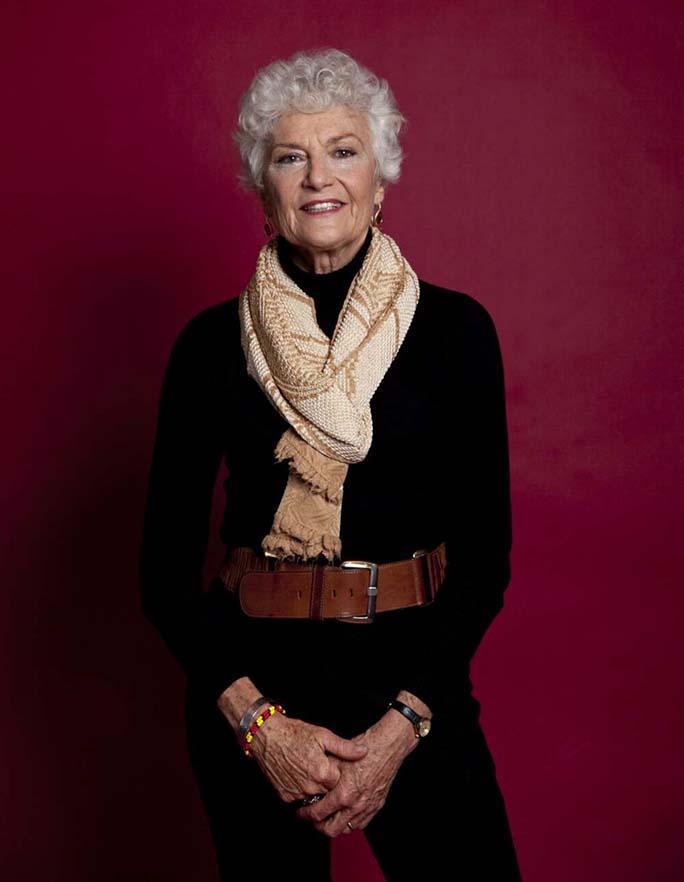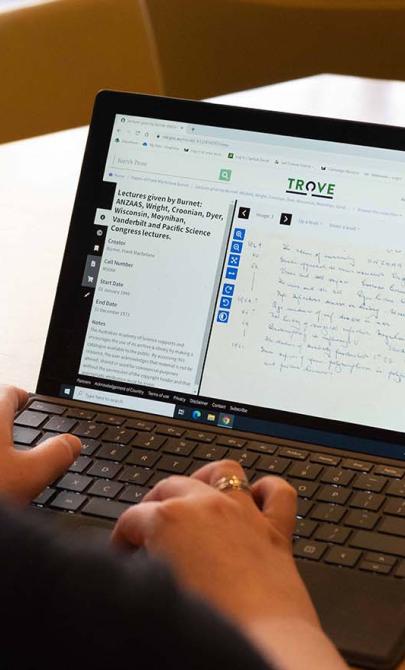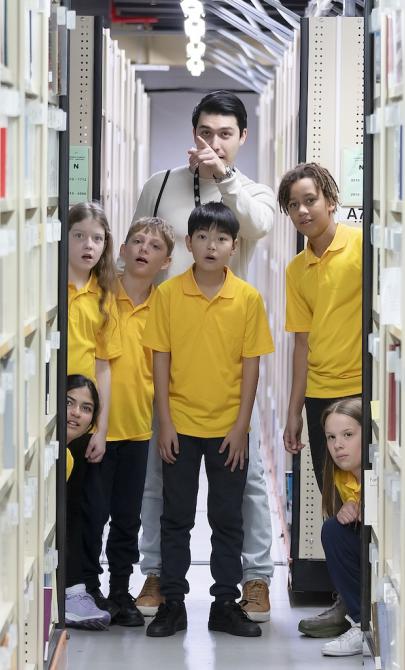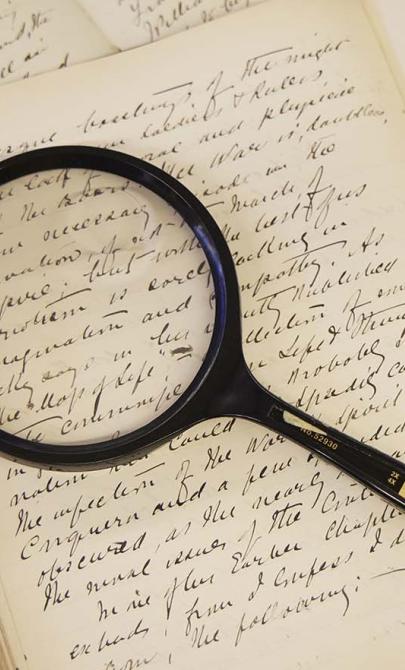Oral history: Professor Fiona Stanley
About Finona Stanley
After working as a paediatrician in Perth, Stanley visited regional and remote communities across Western Australia. These visits sparked her interest in using epidemiology to understand the impact of people’s living and working conditions, diet, exercise, and recreation on their health, as well as how this data can predict health outcomes.
Throughout her career, Stanley has focused on using population data to deliver significant health, social, and economic benefits to communities.

Philip Gostelow, Professor Fiona Stanley at the Telethon Institute for Child Health Research, Subiaco, Perth, 21 August 2013, 2013, nla.gov.au/nla.obj-153312966
Philip Gostelow, Professor Fiona Stanley at the Telethon Institute for Child Health Research, Subiaco, Perth, 21 August 2013, 2013, nla.gov.au/nla.obj-153312966
Listen to Professor Fiona Stanley
Professor Fiona Stanely discusses her early life and family. She talks about her father, who was one of Australia's first virologists.
Professor Fiona Stanley reflects on her education and her time at university in the 1960s. She talks about the impact university life can take a toll on a persons confidence, emotional, and social development.
Professor Fiona Stanley discusses the Busselton Survey, one of the longest running surveys documenting the health data of an entire population.
Professor Fiona Stanley discusses her work in epidemiology
Professor Fiona Stanley talks about her part in uncovering the link between folate and birth defects and the success of the study
Learning activities
Activity 1: Explore the influence of family background on science
Fiona Stanley’s father was one of Australia’s first virologists, and her grandfather was a government scientist in Papua New Guinea. She says she ‘always had this wonderful sense from my father and my grandfather of a quest for knowledge’. Discuss:
- How might a person’s family background or upbringing shape their attitude toward science?
Activity 2: Discuss the challenges of school life
Stanley talks about her life at university and the struggles she faced socially and emotionally while pursuing her studies. Discuss:
- What difficulties can people face at school or university?
- Why is self-care important, and how can we balance work and recreation?
Activity 3: Consider the benefits and challenges of collecting data
Stanley’s work as an epidemiologist relies on gathering data from a wide range of sources to understand diseases. Discuss:
- What are the advantages and disadvantages of collecting data from many sources when conducting a scientific study or survey?
Activity 4: Conduct a survey
- Ask 5 people what their favourite drink is and record the results.
- Ask 20 people the same question and record the results.
Discuss: Which survey result do you think is a more accurate representation of the class’s favourite drink? Why?
Activity 5: Discuss food additives and their impact
Stanley and her colleagues campaigned to fortify flour with folate after discovering its link to birth defects. Discuss:
- What are some common additives in food, and why are they used (health, flavour, shelf-life, appearance)?
- How do you feel about eating foods with additives? Why?



